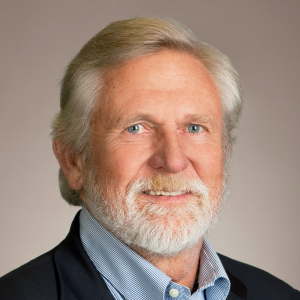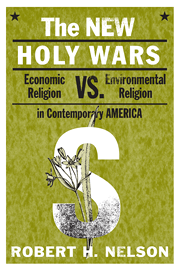On Tuesday, President Obama once again brought up climate change in his State of the Union Address, just as he did in his inaugural address last month. This week, he spoke in the cold voice of science, but in that first address the president took a different approach, one in which the seeds of a broader environmental coalition can be found.
On his second inauguration, Obama said the U.S. must reduce its greenhouse gas emissions in order to “preserve our planet, commanded to our care by God. That’s what will lend meaning to the creed our fathers once declared.”
Climate activists have argued that science, not God, requires urgent greenhouse gas reductions. Now, as a Slate headline put it, “Obama Brings God Into the Climate Change Fight.”
Some environmentalists speculated that Obama might be hoping to reach out to devout Christians—many of them Republicans—in the hope of building a wider consensus.
Role of Christianity
This is a long way from the 1967 declaration of American historian Lynn White, in Science magazine, that Christianity bears primary responsibility for raping the earth. Indeed, Obama’s inaugural remarks appear to have been an allusion to the book of Genesis, which tells us that God gave the world to human beings for their sustenance and enjoyment, but requires us to be good stewards of his creation.
The president also might have been acknowledging the fact that among the political problems of our time, climate change could be the most “wicked” of all. Voters are being asked to bear large burdens now in order to create practical benefits that might not be realized until many of them are dead. If the case for climate change is not deeply moral, capable of invoking powerful altruistic motives, it will be politically hopeless.
Many of Obama’s environmental supporters admittedly have in mind a different message of the Christian God. If human beings alter the climate radically, they will be “playing God,” challenging God’s authority over his own creation. In the Old Testament, we learn that those who challenge God’s authority will surely be punished, typically with flood, famine, pestilence, drought, earthquake or other environmental calamity.
Today, new prophets tell us that our modern sins will lead to rising seas, stronger hurricanes and longer droughts. If we don’t reform our sinful ways, global catastrophe on a biblical scale looms. Billy Graham could hardly have said it better.
Hearing God’s call
In traditional Christian theology, there are two direct ways to access the thinking of God: the “Book of the Bible” and the “Book of Nature.”
Until Charles Darwin, Christians believed that the earth was not much changed from its creation about 6,000 years ago, meaning the design of the natural world offered a glimpse into the mind of God. John Calvin would thus write that God “daily discloses himself in the whole workmanship of the universe.” The plant and animal kingdoms are “burning lamps” that “shine for us ... the glory of its author.” To eliminate a species or damage the earth is to limit our knowledge of God.
In some ways, environmentalism should be seen as a secularized version of Calvinism, minus God. Obama has brought God back into the environmental conversation, even if his theological knowledge is incomplete.












